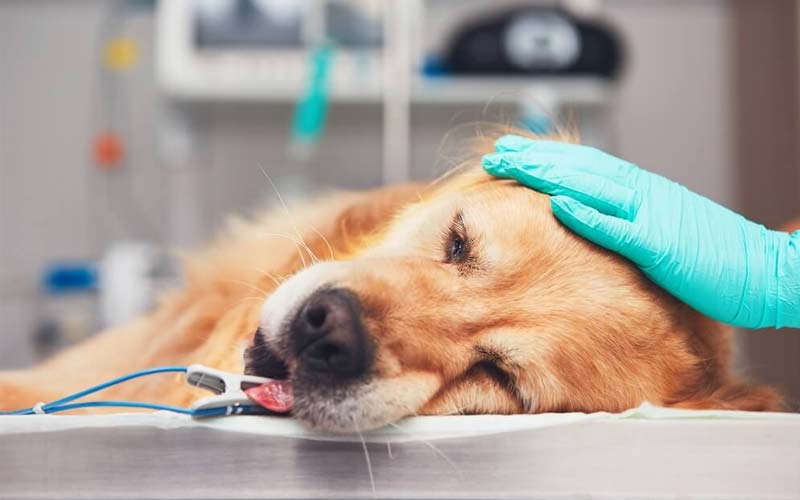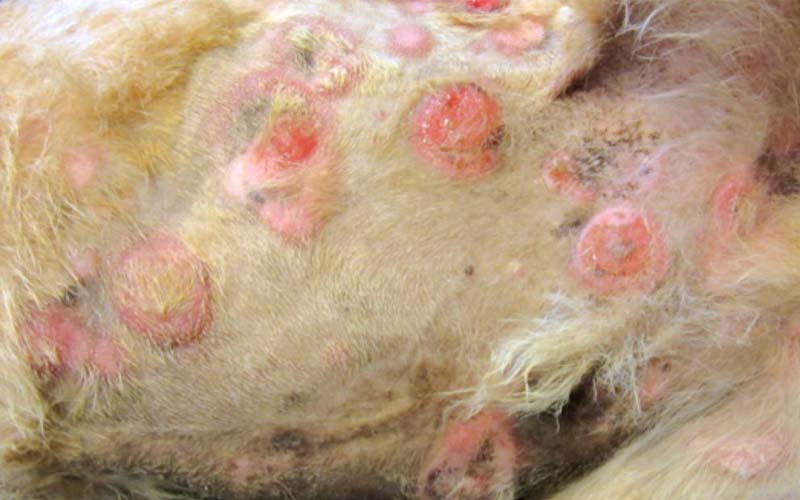Lymphoma, a type of cancer that affects the lymphatic system, can also develop in our beloved canine companions. This condition, known as lymphoma in dogs, can be challenging to detect and comprehend. In this comprehensive guide, we will delve into the key aspects of lymphoma in dogs, including its symptoms, diagnostic procedures, and available treatment options. By raising awareness and understanding, we can take proactive steps to support the well-being of our furry friends.

1. Symptoms of Lymphoma in Dogs
Lymphoma can manifest in various ways depending on the affected organs and the stage of the disease. Recognizing the common signs of lymphoma in dogs is crucial for early detection and prompt treatment. Some notable symptoms may include:
- Enlarged Lymph Nodes: Swollen lymph nodes, typically found near the neck, behind the knees, or in the groin area, may be an initial indication of lymphoma.
- Weight Loss and Loss of Appetite: Dogs with lymphoma often experience unexplained weight loss and a decreased desire to eat.
- Lethargy and Weakness: Reduced energy levels and overall weakness can be observed in dogs affected by lymphoma.
- Respiratory Distress: Dogs with lymphoma in their chest may display difficulty breathing, coughing, or rapid breathing.
- Gastrointestinal Issues: Vomiting, diarrhea, and abdominal discomfort may occur if lymphoma affects the digestive tract.
2. Diagnosis of Lymphoma in Dogs
If you suspect your dog may have lymphoma, seeking veterinary care is essential. A veterinarian will perform a comprehensive examination and conduct diagnostic tests to confirm the presence of lymphoma. These may include:
- Physical Examination: The veterinarian will palpate your dog’s lymph nodes and assess their overall condition.
- Blood Tests: A complete blood count (CBC) and chemistry panel can provide valuable information about your dog’s overall health and rule out other potential causes of symptoms.
- Fine Needle Aspiration (FNA): This non-invasive procedure involves extracting a sample from an enlarged lymph node to examine the cells under a microscope.
- Biopsy: In some cases, a biopsy may be necessary to obtain a larger tissue sample for analysis. It can provide more detailed information about the type and stage of lymphoma.

3. Treatment Options for Lymphoma in Dogs
When it comes to treating lymphoma in dogs, various approaches are available depending on the individual case and its stage. Common treatment options include:
- Chemotherapy: The most common and effective treatment for lymphoma in dogs, chemotherapy uses medication to kill cancer cells and prolong a dog’s quality of life.
- Radiation Therapy: This targeted treatment uses high-energy radiation to destroy cancer cells and is often used in conjunction with chemotherapy.
- Immunotherapy: This emerging treatment option stimulates the immune system to recognize and fight cancer cells more effectively.
- Surgery: In certain cases, surgery may be recommended to remove localized lymphoma masses or to obtain a tissue sample for diagnosis.
4. Supporting Your Dog’s Health
While treatment options can significantly improve a dog’s prognosis, providing additional support for your furry friend’s overall health is equally important. Consider the following measures:
- Balanced Diet: Feed your dog a nutritionally balanced diet to support their immune system and overall well-being.
- Regular Exercise: Engage your dog in regular exercise to maintain their fitness level and mental stimulation.
- Emotional Support: Shower your furry friend with love, attention, and companionship to help them stay positive and reduce stress.
- Veterinary Check-ups: Schedule regular veterinary visits to monitor your dog’s condition, address any concerns, and adjust the treatment plan if necessary.

Conclusion
Lymphoma in dogs can be a daunting diagnosis, but early detection and appropriate treatment can significantly improve a dog’s quality of life. Familiarizing yourself with the symptoms, seeking timely veterinary care, and exploring available treatment options can give your beloved pet the best chance of overcoming this common canine cancer. Remember, with your support and the guidance of your veterinarian, you can provide the necessary care to help your dog fight lymphoma and enjoy a happy, healthy life together.